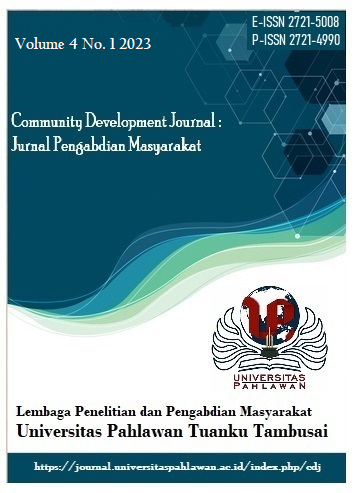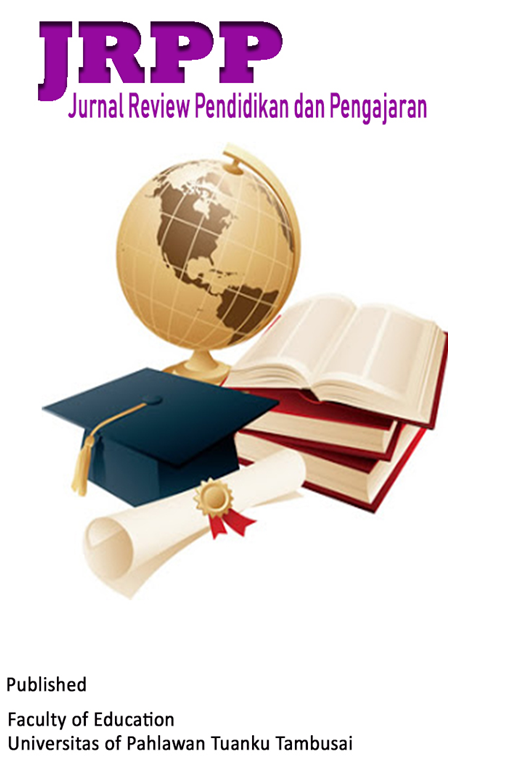UNDERSTANDING THE MEANING OF WELL-BEING IN THE PERSPECTIVE OF PSYCHOLOGICAL SCIENCE: A LITERATURE REVIEW
DOI:
https://doi.org/10.31004/cdj.v4i1.12455Keywords:
Well-Being, Psychology, Human ResourceAbstract
Work is hard, but if it is carried out with joy or it can be said that if you like the work you do, then the person is in a state of well-being. This study aims to explain the dimensions of well-being in detail so that it can be used as the main reference for further research that has special attention to the meaning of well-being in the perspective of psychology. This literature review article develops a conceptual framework on the dimensions of well-being. Based on the literature review, this research arrives at the finding that there are six dimensions of well-being which are the essence of positive functioning psychology theories ranging from self-acceptance, autonomy, environmental mastery, positive relationships, purpose in life, and personal growth. The research methodology and arguments that accompany this study can help advance discussions in psychology, management, and business administration courses. This research has important implications for future studies that use quantitative, qualitative, and mixed methodologies.References
Allport, G. W. (1961). Pattern and growth in personality. Holt, Reinhart & Winston.
Ausat, A. M. A., Widayani, A., Rachmawati, I., Latifah, N., & Suherlan, S. (2022). The Effect of Intellectual Capital and Innovative Work Behavior on Business Performance. Journal of Economics, Business, & Accountancy Ventura, 24(3), 363–378. https://doi.org/10.14414/jebav.v24i3.2809
Jalali, Z., & Heidari, A. (2016). The Relationship between Happiness, Subjective Well-Being, Creativity and Job Performance of Primary School Teachers in Ramhormoz City. International Education Studies, 9(6), 45–60. https://doi.org/10.5539/ies.v9n6p45
Kartikasari, N. Y. (2013). Body Dissatisfaction terhadap Psychological Well-Being pada Karyawati. Jurnal Ilmiah Psikologi Terapan, 1(2), 304–323.
Khootimah Az-zaakiyyah, H., Hidayat, F., Ausat, A. M. A., & Suherlan, S. (2022). Islamic Rural Bank Employee Performance: Role of Motivation, Compensation, and Work Environment. EkBis: Jurnal Ekonomi Dan Bisnis, 6(1), 44–58. https://doi.org/10.14421/EKBIS.2022.6.1.1551
Kundi, Y. M., Aboramadan, M., Elhamalawi, E. M. I., & Shahid, S. (2021). Employee psychological well-being and job performance: exploring mediating and moderating mechanisms. International Journal of Organizational Analysis, 29(3), 736–754. https://doi.org/10.1108/IJOA-05-2020-2204
Nur’aeni, Ausat, A. M. A., Purnomo, Y. J., Munir, A. R., & Suherlan. (2022). Do Motivation, Compensation, and Work Environment Improve Employee Performance: A Literature Review. International Journal of Artificial Intelligence Research, 6(1.2), 1. https://doi.org/https://doi.org/10.29099/ijair.v6i1.2.678
Rogers, C. R. (1961). On becoming a person: a therapist’s view of psychotherapy. Houghton Mifflin Company.
Ruggeri, K., Garcia-Garzon, E., Maguire, Á., Matz, S., & Huppert, F. A. (2020). Well-being is more than happiness and life satisfaction: a multidimensional analysis of 21 countries. Health and Quality of Life Outcomes, 18(1), 192. https://doi.org/10.1186/s12955-020-01423-y
Ryff, C. D. (1989). Happiness is everything, or is it? Explorations on the meaning of psychological well-being. Journal of Personality and Social Psychology, 57(6), 1069–1081. https://doi.org/10.1037/0022-3514.57.6.1069
Ryff, C. D. (1995). Psychological Well-Being in Adult Life. Current Directions in Psychological Science, 4(4), 99–104. https://doi.org/10.1111/1467-8721.ep10772395
Ryff, C. D., & Keyes, C. L. M. (1995). The structure of psychological well-being revisited. Journal of Personality and Social Psychology, 69(4), 719–727. https://doi.org/10.1037/0022-3514.69.4.719
Sabil, A. P. (2021). Pengaruh Employee Well-Being dan Job Satisfaction terhadap Employee Performance. Jurnal Ilmu Manajemen, 9(4), 1341–1348.
?ahin, S., & Çankir, B. (2018). Psychological Well-Being and Job Performance: The Mediating Role of Work Engagement. Hitit Üniversitesi Sosyal Bilimler Enstitüsü Dergisi, 11(3), 2549–2560. https://doi.org/10.17218/hititsosbil.487244
Saraswati, K. D. H., & Teja, J. (2018). Psychological Well-Being of Employees in Java, Indonesia. Jurnal Muara Ilmu Sosial, Humaniora, Dan Seni, 2(2), 597–605.
Soeharso, S. Y. (2020). PSIKOLOGI BISNIS - Cara Baru Mengelola Bisnis (W. Setiadi, Ed.; 1st ed.). Lautan Pustaka.
Sofyanty, D., & Setiawan, T. (2020). Pengaruh Kontrak Psikologis dan Psychological Well Being terhadap Kinerja Karyawan: Studi pada PT Asia Kapitalindo Jakarta. Intelektiva: Jurnal Ekonomi, Sosial & Humaniora, 2(2), 25–34.
Subagja, A. D., Ausat, A. M. A., & Suherlan. (2022). The Role of Social Media Utilization and Innovativeness on SMEs Performance. Jurnal IPTEK-KOM (Jurnal Ilmu Pengetahuan Dan Teknologi Komunikasi), 24(2), 85–102. https://doi.org/https://doi.org/10.17933/iptekkom.24.2.2022.85-102
Unesco. (2021). Reimagining our futures together: a new social contract for education. he United Nations Educational, Scientific and Cultural Organization,7.
Wadhawan, K. (2016). Psychological well-being as a predictor to job performance and job satisfaction. International Journal of Academic Research and Development, 1(3), 1–3.
Wlodarski, R., & Dunbar, R. I. M. (2014). The Effects of Romantic Love on Mentalizing Abilities. Review of General Psychology, 18(4), 313–321. https://doi.org/10.1037/gpr0000020

Downloads
Published
Versions
- 2023-02-25 (2)
- 2023-02-25 (1)
How to Cite
Issue
Section
License
Copyright (c) 2023 Rinandita Wikansari, Abu Muna Almaududi Ausat, Silvy Sondari Gadzali, Suherlan Suherlan, Hizbul Khootimah Azzaakiyyah

This work is licensed under a Creative Commons Attribution-ShareAlike 4.0 International License.














